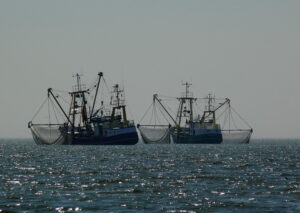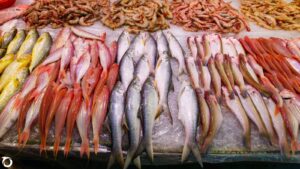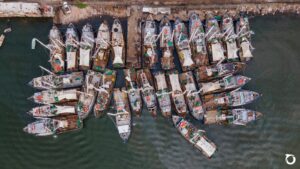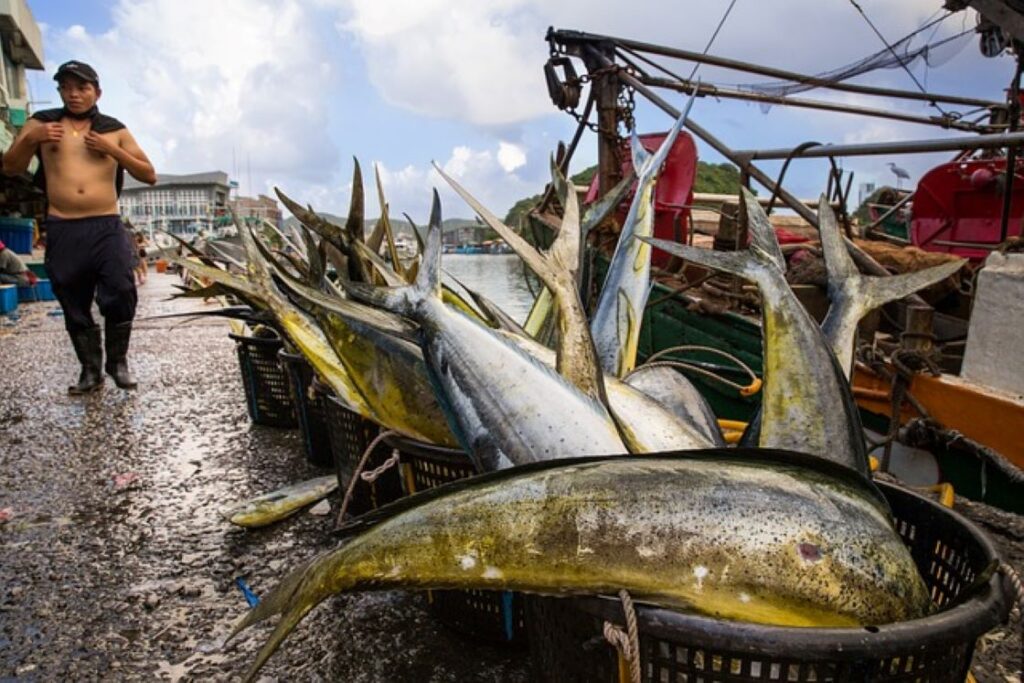The traceability in fisheries is defined by Oceana as the mechanism that allows to know the path of the fish and its products from the catch to the final consumer's table, its export or its inclusion in other industrial processes.
This concept is important because it is the solution proposed by this international organization for the protection of the oceans to a problem that is occurring in the world's oceans. Mexico and that is exacerbated in Sinaloa y Sonora: the species substitution.
The study Cat X Hare: Cheating in the Northwestby Oceana The lack of knowledge about the origin and journey of fish products, from the boat to the plate, allows species substitution to occur. This lack of knowledge about the origin and journey of fish products, from the boat to the plate, allows species substitution to occur.
"We need to know with full transparency how fishing is viewed in our country, what species are caught, where, when, what fishing gear is used and what vessels are involved," he says.

This helps to ensure that fishing is carried out in a responsible manner, avoiding the overexploitation of fish species, protecting the environment and protecting the environment. marine ecosystems that sustain the enormous variety of fish and seafood we consume, as well as species of great importance because of their role in food chains, he believes.
Consumers get a pig in a poke
Since 2019, and through DNA and PCR samples, Oceana has conducted a series of studies of species substitution The study has found that the percentage of substitution reaches 44% at the national level.
In December 2022 this survey was conducted in 194 fishmongers and restaurants in the cities of Mazatlan y Culiacanin Sinaloa; and Obregon City y Hermosilloin Sonora.
"Sonora and Sinaloa have an average of 49% of substitution. This means that one out of every two times we bought fish in fishmongers and restaurants in these states we were given a completely different fish. In fishmongers the substitution was 54% and in restaurants 44%," the study reveals.
Oceana emphasizes that Sonora and Sinaloa were selected for this study because they are the most relevant fishing states, due to the volume of products caught, as well as the economic value they represent. Together, both states account for 62% of national fishery production.
Substitution of species by cities
Culiacan 60%
- Fishmongers 69%
- Restaurants 53%
Mazatlan 46%
- Fishmongers 58%
- Restaurants 32%
Obregon Cd. 50%
- Fishmongers 36%
- Restaurants 69%
Hermosillo 45%
- Fishmongers 50%
- Restaurants 36%

Oceana points out that up to 25% of the species substitution is by products of the aquaculturewhich are advertised as wild fish species.
The based is a product of aquaculture, mostly imported from Vietnam which is priced at 106 pesos per kilogram, but was found in this study to be marketed as mereat a price that reaches up to 645 pesos.
"In addition to basa, we also find tilapia as one of the species used as a substitute. Although there is tilapia farming in Mexico, 99.8% is imported from China. In 2022, tilapia imports had a value of 254 million 485 thousand 922 dollars, which is equivalent to more than one third of Sinaloa's total production by 2021," the study details.
The tilapiawith a price of 126 pesos per kilo, was found in these cities of Sinaloa and Sonora selling as snapper o sea bassThe prices of these species are 282 and 463 pesos per kilo, respectively.
"Species substitution seriously affects the economy of people, who may unknowingly pay up to six times more than the real value of the fish they consume," says Oceana.
The problem with the high presence of these products, he adds, is that they are sold as if they were national and wild fish, deceiving consumers and displacing fish and shellfish from Mexican fishing communities from the market.
Endangered species, as substitutes
Cat X Hare: Cheating in the Northwest also found that they were sold. endangered species on more than one occasion, such is the case of the curved fin devil ray and some sharks, including the hammerhead shark which is listed as critically endangered.
"When we are given Cat X Hare, not only people's pockets are affected, but also their ability to make responsible and informed consumption decisions. Without even knowing it, we could be putting the health of the seas at risk by consuming endangered species, whose commercialization is prohibited or that have a great value in maintaining the balance of marine ecosystems," emphasizes Oceana.
Traceability as a solution
Since 2019 there is in Conapesca a project of Mexican Official Traceability Standard which aims to record key information on the entire fish value chain, from where the fish is caught, on what date, with what fishing permit, where it is landed, in what plant it is processed, how it is transported and where it is sold.
With this regulation, Conapesca can implement a traceability system The aim is to provide timely follow-up of the fish product from capture to the last point of commercialization, that is, from the boat to the plate, and to avoid substitution at any stage of the fish's journey from capture to the last point of sale.

Source: Oceana


